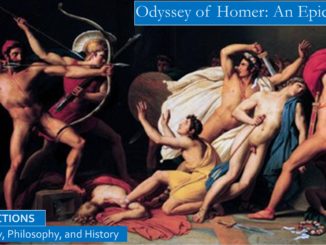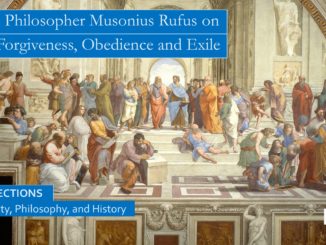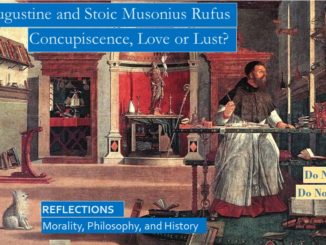
Odyssey, Blog 3, Odysseus Returns Home to Ithaca
We get a rare glimpse into the lives of the slaves, the lives spent serving their masters, when Odysseus, disguised as a beggar, approaches the hovel of his swineherd Eumaeus, who chases away the dogs who snap at the stranger, offering hospitality to even an old beggar. “Old man, my dogs had nearly torn you to pieces here, all of a sudden, and so you would have brought reproach upon me. Ah well! The gods have given me other griefs and sorrows; for over my matchless master I sit and sign and groan, and tend fat hogs for other men to eat; while my master, hungry, wanders among lands and men who speak alien tongues, if he still lives and feels the sunshine. But follow me, old man, into the lodge, so that when you have eaten and drunk your fill, you may tell me where you come from and what troubles you have borne.” The good swineherd is more concerned about the beggar’s troubles than who he is. […]




